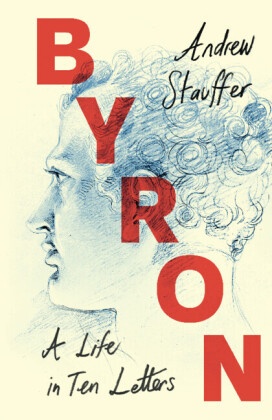Byron: A Life in Ten Letters
| Verlag | Cambridge University Press |
| Auflage | 2024 |
| Seiten | 300 |
| Format | 14,9 x 2,6 x 22,4 cm |
| Gewicht | 790 g |
| Artikeltyp | Englisches Buch |
| EAN | 9781009200165 |
| Bestell-Nr | 00920016UA |
A Byron biography like no other - told through ten moving and resonant letters - timed for the bicentennial of his death.
Lord Byron was the most celebrated of all the Romantic poets. Troubled, handsome, sexually fluid, disabled, and transgressive, he wrote his way to international fame - and scandal - before finding a kind of redemption in the Greek Revolution. He also left behind the vast trove of thrilling letters (to friends, relatives, lovers, and more) that form the core of this remarkable biography. Published to coincide with the 200th anniversary of Byron's death, and adopting a fresh approach, it explores his life and work through some of his best, most resonant correspondence. Each chapter opens with Byron's own voice - as if we have opened a letter from the poet himself - followed by a vivid account of the emotions and experiences that missive touches. This gripping life traces the meteoric trajectory of a poet whose brilliance shook the world and whose legacy continues to shape art and culture to this day.
Inhaltsverzeichnis:
Introduction; 1. A Spice of Every Thing: To Elizabeth Pigot, 26 October 1807, Trinity College, Cambridge; 2. The Air of Greece: To Henry Drury, 3 May 1810, Salsette Frigate in the Dardanelles off Abydos, Turkey; 3. Mad, Bad, and Dangerous to Know: To Lady Melbourne, 8 October 1813, Aston Hall, Rotherham, Yorkshire; 4. Fare Thee Well: To Lady Byron, 8 February 1816, 13 Piccadilly Terrace, London; 5. Haunted Summer: To Augusta Leigh, 8 September 1816, Villa Diodati, Cologny, near Geneva; 6. The Greenest Isle of My Imagination: To John Murray, 1 August 1819, Ravenna / Venice; 7. Strictest Adultery: To Countess Teresa Guiccioli, 7 December 1819, Venice; 8. A Funeral Pile: To Thomas Moore, 27 August 1822, Pisa; 9. To Join the Greeks: To John Cam Hobhouse, 7 April 1823, Casa Saluzzo, Albaro, near Genoa; 10. Pilgrim of Eternity: To John Murray, 25 February 1824, Messolonghi; After Byron.
Rezension:
'This new biography of Byron is a miracle of condensation; by putting the letters centre-stage, Professor Stauffer manages to let his subject speak for himself in all the contradictory range of his moods and circumstances - at the same time as elegantly and unobtrusively shaping a narrative that leaps off the page.' Roderick Beaton, Emeritus Koraes Professor of Modern Greek & Byzantine History, Language & Literature, King's College London

